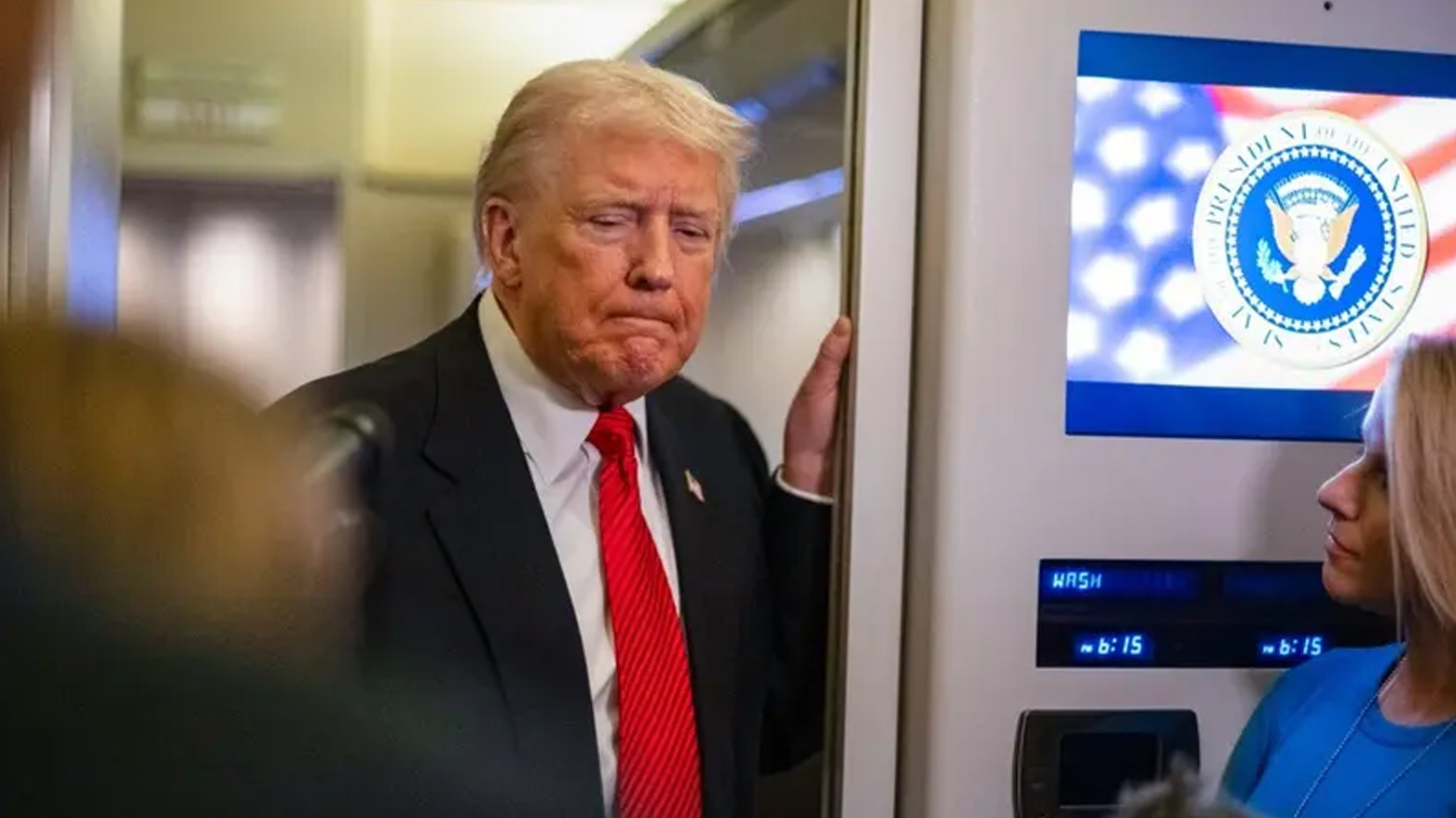Trump Says Republicans Drafting Bill to Sanction Any Country Doing Business With Russia, Hints Iran Could Be Added
The proposal marks a significant escalation in Washington’s pressure campaign, potentially reshaping U.S. relations with countries maintaining commercial ties to Moscow and Tehran.

ERBIL (Kurdistan24) — President Donald Trump said on Sunday that Republicans are preparing legislation to impose sweeping sanctions on any country conducting business with Russia, signaling a major escalation in the United States’ economic pressure strategy. He also suggested that Iran could be added to the list of sanctioned states, raising the prospect of broad secondary sanctions that could impact allies and major global markets.
Speaking to reporters, Trump said he had personally proposed the measure. “As you know, I suggested it, so any country that does business with Russia will be very severely sanctioned,” he said. “They may add Iran to that,” he added, without elaborating on the timing, scope, or enforcement mechanisms of the emerging legislation.
The comments come at a moment of heightened geopolitical tension, as Washington continues to push back against Moscow’s global activities — including its military operations, energy exports, and deepening partnerships with U.S. rivals.
Sanctioning any nation that does business with Russia would represent one of the most far-reaching economic measures ever introduced by the United States, expanding penalties beyond targeted entities to potentially entire economies.
Adding Iran to the legislation would further intensify Washington’s long-standing confrontation with Tehran. The Islamic Republic is already under extensive U.S. sanctions affecting its banking, energy, and defense sectors.
New secondary sanctions could target countries ranging from China and India — major importers of Iranian oil — to regional players who maintain commercial or energy links with Tehran.
Such legislation would also test Washington’s relationships with its European and Asian allies, many of whom have sought to balance their strategic ties with the U.S. and their economic needs linked to Russian and Iranian markets.
A sweeping sanctions mandate could force governments to choose between continued engagement with Moscow and Tehran or risk losing access to the U.S. financial system.
Experts say Trump’s statement reflects a broader shift toward aggressive economic statecraft, where sanctions serve not only to punish adversaries but to influence the global alignment of third-party states.
However, critics warn that overuse of sanctions risks pushing countries toward alternative financial systems beyond U.S. reach, potentially weakening Washington’s long-term leverage.
Lawmakers have not yet released a draft of the proposed bill, and it remains unclear how much bipartisan support it may receive. Still, Trump’s remarks indicate that Republicans are prepared to pursue a more expansive sanctions agenda that could reshape international trade and diplomatic relations.
As global markets watch closely, governments with commercial ties to Russia — and possibly Iran — may soon be forced to reassess their economic strategies in anticipation of a new era of U.S. pressure.
U.S. Central Command later on Sunday condemned Iran’s latest escalation in the Strait of Hormuz after Islamic Revolutionary Guard Corps (IRGC) forces descended by helicopter onto the Marshall Islands–flagged M/V Talara, seizing the vessel as it transited through international waters on Nov. 14.
CENTCOM said the operatives forcibly redirected the tanker into Iranian territorial waters, where it remains held, calling the action an unmistakable breach of international law and a direct challenge to the principle of freedom of navigation in one of the world’s most critical maritime chokepoints.
Iran’s IRGC on Saturday confirmed it had intercepted and seized an oil tanker off the country’s southern coast, in what observers say marks a significant escalation in Tehran’s assertive maritime strategy. The operation came a day after private security firms assessed Iran as the likely perpetrator of the incident.
The U.S. military stressed that the armed takeover of a commercial vessel underscores a pattern of destabilizing behavior by Tehran at a time when global energy markets are already on edge.
CENTCOM said it will continue monitoring the situation closely and remain “vigilant,” coordinating with regional and international partners to safeguard maritime routes and ensure the uninterrupted flow of global commerce.